Teaching under assault as school year begins
By Johania Charles
On August 15, 2023
Parents and educators worry about upcoming school year
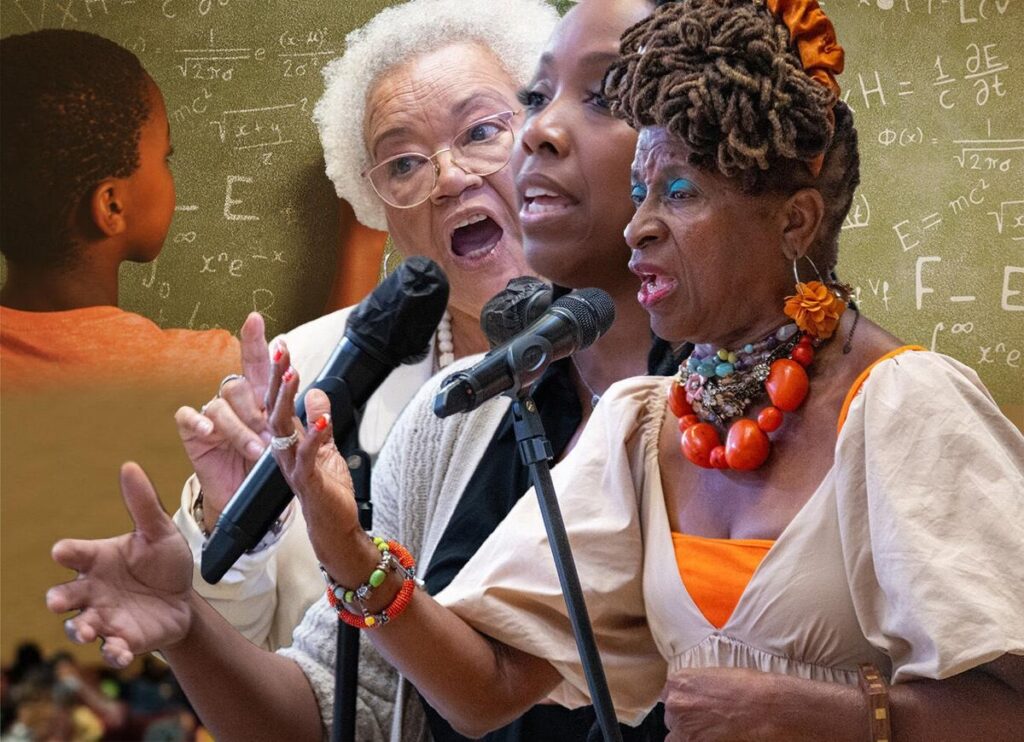
As public schools in Miami-Dade and Broward counties prepare for students to return to classrooms on Thursday, teachers, parents and elected leaders are worried about how Black history will be taught this academic year under Florida’s new social studies standards.
Those concerns were voiced at Antioch Missionary Baptist Church in Miami Gardens, Fla., last week during a town hall organized by Sens. Shevrin Jones and Rosalind Osgood, and Miami-Dade County Public Schools board member Steve Gallon III.
The 2023 academic standards come after a number of Florida school districts removed hundreds of books from shelves, the DeSantis administration’s rejection of the College Board’s African American Advanced Placement course and the passage of the Stop WOKE Act.
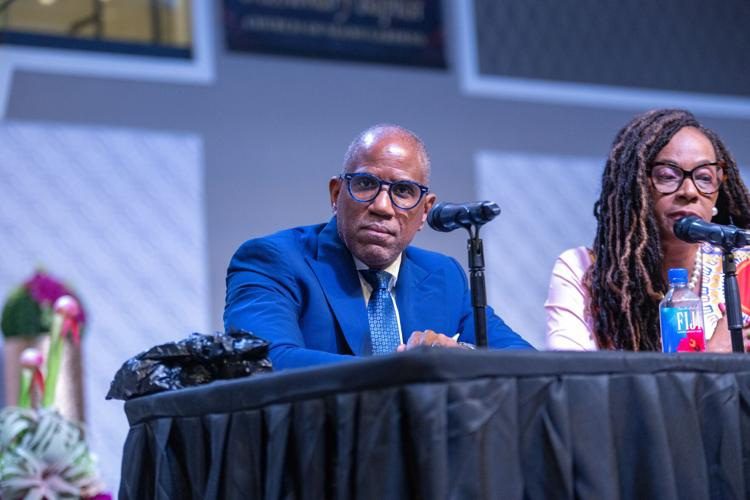
Officials say growing restrictions on what can and cannot be taught in schools are driving more teachers away. An estimated 7,000 classrooms in Miami-Dade and Broward counties combined will not have a certified teacher on the first day of school.
“There’s a chilling effect on teachers,” said Federick Ingram, secretary-treasurer for the American Federation of Teachers (AFT), at the town hall. “Every day people are putting the keys on the desk saying, ‘Mr. Principal, you can have your classroom.’ Our best and brightest high school students are making conscious decisions not to go into education.”
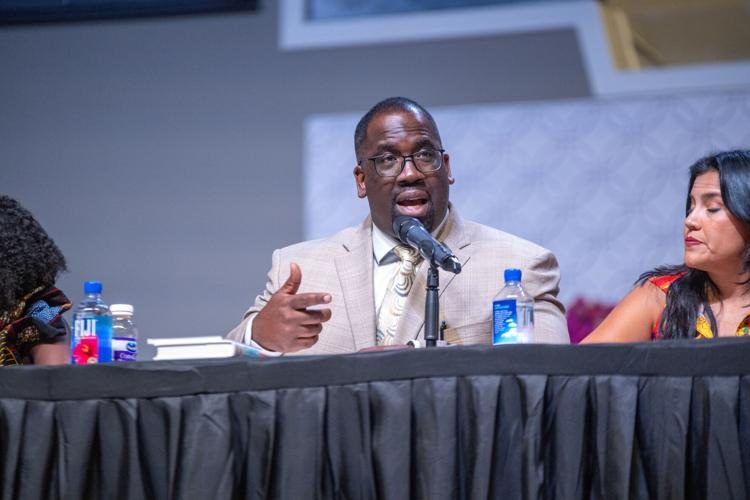
“No elected official should be trying to tell a professionally trained teacher what to do in a classroom,” said Osgood. “We think that we have to micromanage education … It’s kind of like us telling a fireman how to put out a fire when they have been trained on how to put out a fire.”
The former educators arranged the town hall to invite discussion on the state’s African American history standards, which require instruction on the influences and contributions of Black people throughout history, slavery and emancipation.
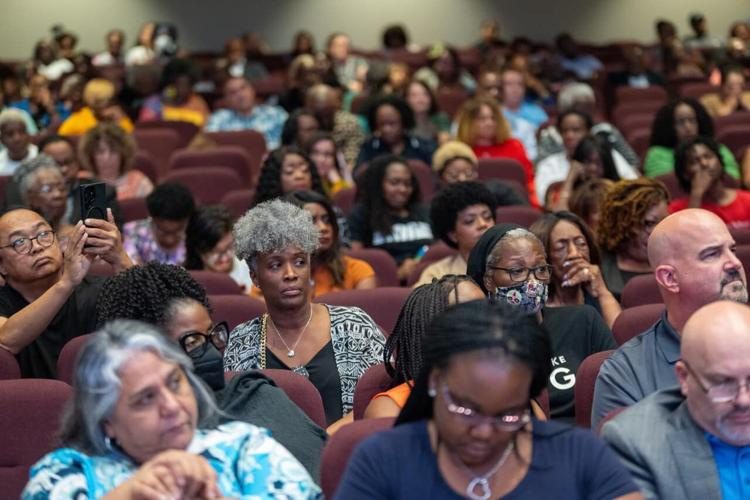
A component of the approved slavery lesson plan, which includes instruction on how slaves developed skills that could be applied for their personal benefit, remained the topic of conversation during the night.
The state also provides strict guidelines on how educators should teach civics and government, Holocaust education, financial literacy, world history, psychology, geography, economics and sociology.
Florida’s revised Black history standards have since received backlash, with many labeling them as an attempt to “whitewash” history. The state’s board of education is also facing heat for approving PragerU, an advocacy group and media organization that promotes conservative viewpoints, to be used in classrooms as supplemental curriculum.
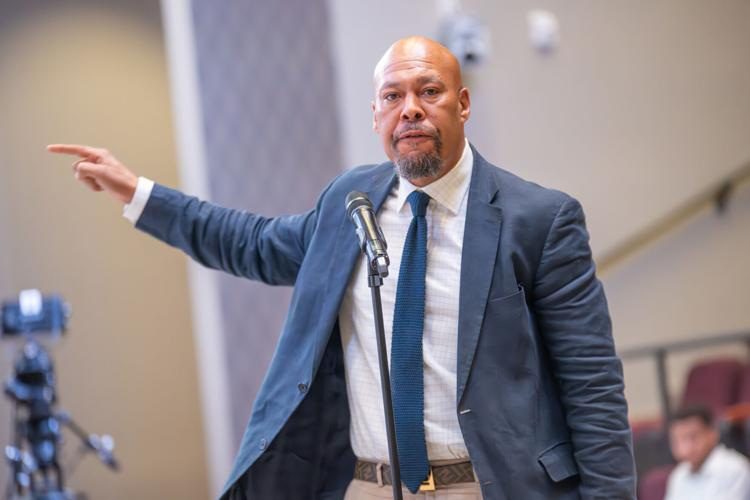
An animated PragerU video from 2021, where Frederick Douglass tells two time travelers that slavery was a compromise made to achieve something great, has recirculated and drawn renewed stark criticism from historians.
Another video shows Christopher Columbus telling the same time travelers that being taken as a slave is better than being killed.
Jones spearheaded the public forum as its moderator and Gallon, Osgood, Rep. Felicia Robinson, Ingram and Karla Hernández-Mats, United Teachers of Dade president, served as panelists.
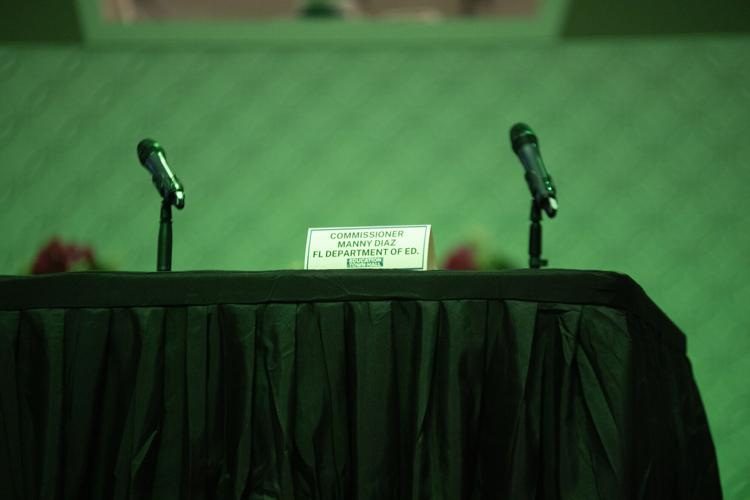
Florida Education Commissioner Manny Diaz Jr., who was invited to join the six-person panel, declined to attend despite initially confirming he would be there, according to organizers. He is responsible for overseeing the state’s latest academic standards.
“Manny Diaz is a coward,” Ingram told the panel audience. “They know how important this is to the Black community. They know that they’ve thrown an academic bomb in our community and they know that they should’ve been here tonight to face you.
“If you believe that slavery benefitted Black folks, if you believe that we can teach about Rosa Parks but not her activism … that we can leave out Reconstruction in the entire breadth of American history, then come defend that.”
Hernández-Mats, whose union represents 27,000 employees in the nation’s third-largest school district, said teacher morale is low.
“There is concern; they don’t know what they should or should not be saying. And we’re trying to deliver optimism,” she explained. ”You have an education commissioner that is, besides a coward, a blatant racist.”
Teachers, who oppose the history curriculum, sought advice from panelists on how to speak out without risking their jobs.
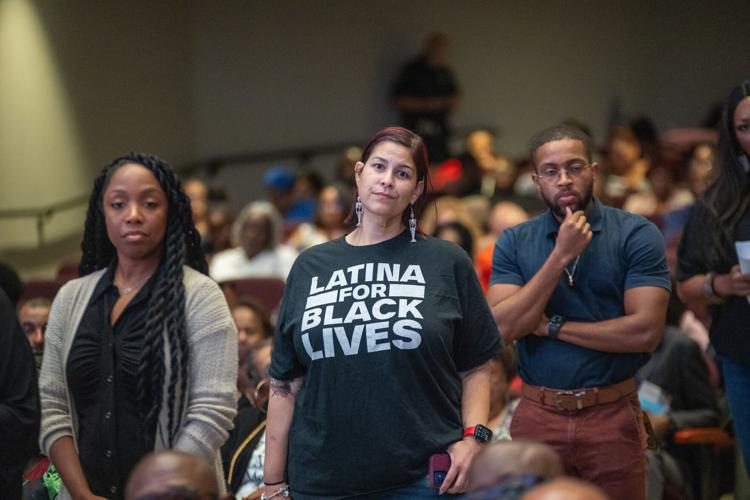
“How will the union stand and protect teachers like me who are willing to say, ‘No, I won’t teach that, I’m teaching the truth,’” asked Melissa, a 21-year educator who did not provide her last name. “Who’s going to stand up for us? In a right-to-work state, they can fire us because they don’t like the color of our nail polish. I want to stand up and fight, but I’m afraid because rent is high and it’s due.”
Hernández-Mats and Ingram assured teachers that their respective teachers’ unions will have their backs.
“The AFT is going to defend any teacher that teaches honest history in our schools,” said Ingram.
“If I refuse to take the (banned) books off the shelf to appease the principal, which is to appease the folks downtown, who’s going to ensure I have a job,” asked another teacher. “I can’t depend on my union forever … I can’t pay rent. I’m working two or three jobs. I’m going in on Monday – which one of you can I call when the principal tells me to get out? And I don’t want to get no voicemail when I call.”
Osgood said that constituents can count on her to answer the call.
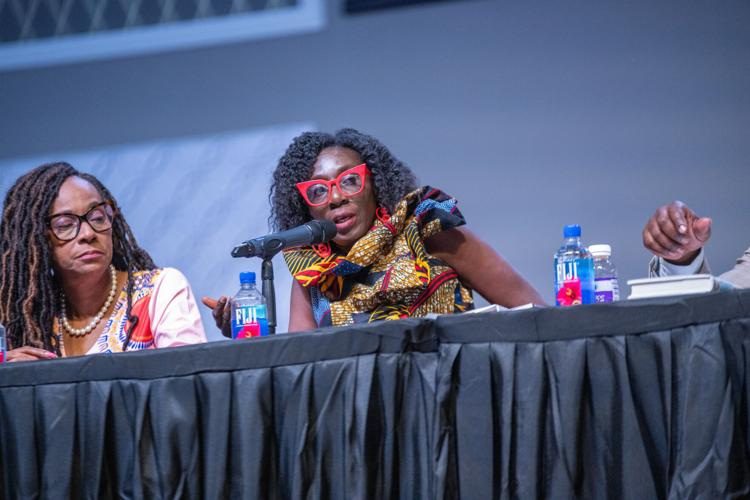
A call to action
Determined to leave last Thursday’s meeting with a game plan, panelists and attendees brainstormed ways to take action.
“We need to actually leave here tonight with some action steps,” said Robinson. “There’s something each one of us can do to make a change. Voting is one of them, but it’s not the only one.”
Elizabeth Judd, a Miami-Dade County resident and former NAACP board member, said the answer lies with the Black Florida Action Fund, a grassroots organization building political power for Black people.
Aside from voting, parents were advised to invoke the Parents’ Bill of Rights, and to speak with their child’s school principal or attend school board meetings to make their voices heard.
Those who attended the panel in person or watched its livestream, as well as individuals who didn’t attend or view the town hall, have been asked to join education policy workgroups for the next legislative sessions. Panelists also encouraged people to take trips to Tallahassee with friends and family to advocate for their educational rights.
Christine Olivo, who ran for Congress in 2020 and 2022, suggested a ballot initiative to propose laws in support of teaching Black history.
And one attendee suggested pulling Black athletes out of Florida universities and encouraging prospective students to go elsewhere, in an attempt to impact the schools’ revenue and talent pool. Ingram shot the idea down and suggested instead that students populate historically Black colleges and universities.
This piece was republished from The Miami Times.